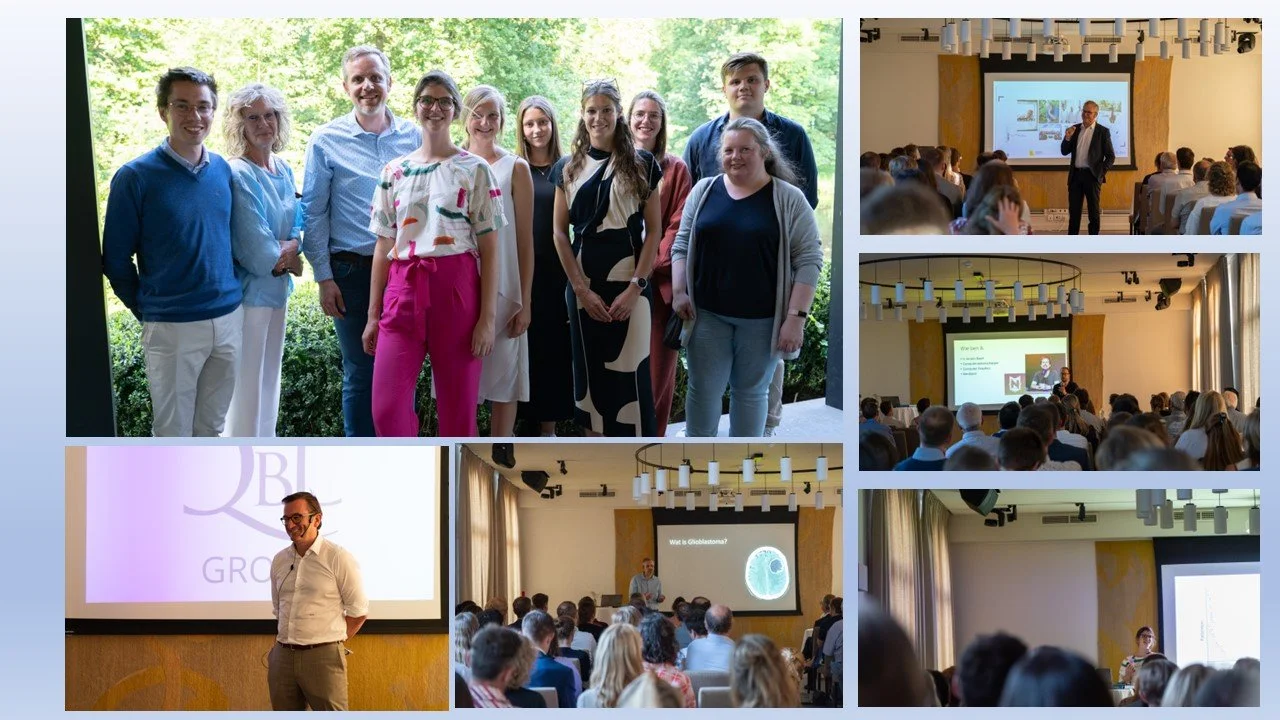Foundation against cancer: Beating cancer together
On September 22, the Foundation against Cancer invited its donors and partners to the event “Beating Cancer Together” at the AG Campus in Brussels. During this event she presented scientific grants – the Oscars of cancer research, in other words – to Belgian researchers and their teams, our team was one of them.
Team: Frederik De Smet (KU Leuven), Vanessa Vermeirssen (U Gent) and Roel Quintens (SCK-CEN): Targeting radiation-induced plasticity in glioblastoma: from fundamental insights to tailored therapeutic opportunities
Glioblastoma brain tumors remain one of the deadliest cancer types with little effective treatments, and clinical research over the past 15 years has not yet improved the situation. The main problem is the different types of "cancer stem cells". These type cells recover or adapt most quickly after radiation. Therefore, these cells are often the cause of resistance to treatments. In this project, researchers from KULeuven, Ghent University and SCK-CEN will investigate the mechanisms by which cancer stem cells change under the influence of radiotherapy, the cellular changes that contribute to resistance to treatment, and approaches to counteract this phenomenon. To this end, they will use experimental models developed from cancer cells from glioblastoma patients, incorporating recent multiomics (DNA, RNA and protein analysis) and single-cell CRISPR techniques (a kind of "molecular scissors" that cut the DNA onto a specific point in the genome of a target cell). This dataset, will be recorded by computer using in-depth algorithms to relate the main mechanisms.







